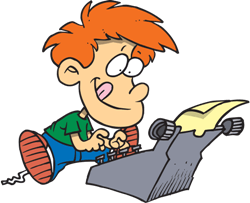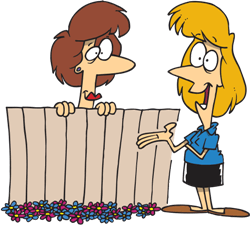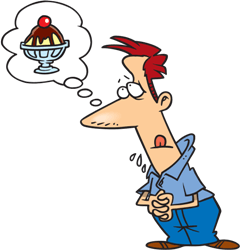Present Tense Verbs Worksheets
Practice the present tense
in English with our present tense verbs worksheets!
When we learn the present tenses in English, we have our first contact with tense formation and auxiliary verbs in English, too!
These three tenses (the simple present, the present progressive, and the present perfect) are very commonly used in the English language, so it's very important to master them and be able to use them comfortably. And remember, practice makes perfect! So use these present tense verbs worksheets to help you become a pro!
Click Here for Step-by-Step Rules, Stories and Exercises to Practice All English Tenses
When we learn the present tenses in English, we have our first contact with tense formation and auxiliary verbs in English, too!
These three tenses (the simple present, the present progressive, and the present perfect) are very commonly used in the English language, so it's very important to master them and be able to use them comfortably. And remember, practice makes perfect! So use these present tense verbs worksheets to help you become a pro!

We use the simple present to talk about habits, facts that are always true, and states in the present.
For example:
- Gerald votes
every year. He is
a responsible citizen and participates in
every election.
- Some people don't
vote at all. In some countries, the citizens don't have the
option to vote.
- Do you vote in elections? How do you participate in politics?

Another present tense is the present progressive. You should review this page before you continue.
We use the present progressive to talk about actions that are happening now or are currently in progress (this week, etc.), planned future actions, and annoying repeating actions.
For example:
- Ted is
falling! He
is spilling his coffee!
- I am not
falling. I am
not dropping my cake on the floor.
- Is Ted falling? Is he dropping his cake?

The final present tense is the present perfect. You should review this page before you continue. It's also a very good idea to review the irregular verbs, because we need to use the past participle to form the present perfect.
We use the present perfect to talk about actions that happened at an unspecified time before the present, actions that ended recently, and states that started in the past and are still going on.
The most important thing to remember when we use the present perfect is that we are really focusing on the present or the result of actions that happened before the present.
For example:
- Henry has
cooked some eggs. He has
added a bit of salt to them.
- They haven't
cooked anything. I haven't
added salt to anything.
- Has Henry cooked the eggs? Have you added any salt to them?

Review the pages for each tense if you have any questions before completing the worksheets.
Exercise A: The simple present
Write the correct form of the verb in parentheses, ( ). Be sure to check the subject and whether the sentence is positive, negative, or a question.1. My children __________ to play in the park. (love)
2. __________ Angela __________ time to help us with this project? (have)
3. On the weekends, I __________ to the movies. (go)
4. __________ you __________ where the police station is? (know)
5. Chris ____________________ television because he says there is nothing good to see. (watch) (negative)
6. __________ the cookies ready yet? (be)
7. The students ____________________ doing their homework, but it's very important! (like) (negative)
8. She __________ a lot of tea because it is healthier than coffee. (drink)
9. We ____________________ very much these days, but someday we will. (travel) (negative)
10. __________ he __________ that music is important for young students? (think)
Exercise B: The present progressive
Complete the sentences below each picture. There is a positive sentence, a negative sentence, and a question for each.Use the verbs from the list. There is one verb for each picture.
ride teach hug celebrate talk
1.

Alice ____________________ her 25th birthday!
Who __________ she ___________ with? Her family?
No, she ____________________ with her family. She is with her friends!
2.

Jimmy ____________________ his horse!
__________ he __________ his horse in a race?
No, he ____________________ in a race. They're in a rodeo!
3.

These two neighbors ____________________ over the fence.
__________ they __________ about the weather?
No, they ____________________ about the weather. The topic is their dreams!
4.

Jeremy ____________________ his father. He is happy to see him!
__________ his father __________ him, too?
No, he ____________________ him yet. He still needs to put down his briefcase!
5.

Dr. Robbins ____________________ a class at the university.
What subject __________ Dr. Robbins __________? Literature?
No, Dr. Robbins ____________________ literature! She's a math professor!
Exercise C: The present perfect
Complete the conversation below using the verbs in parentheses, ( ), in the present perfect.
Anna: Hello, Brad! __________ you __________ to Kim? (talk)
Brad: Hello, Anna! No, in fact I ____________________ her in a few days. (see) (negative)
Anna: Oh, I see.
Brad: Why do you ask? Is she all right? __________ something __________ to her? (happen)
Anna: Oh no, she's fine! In fact, she ____________________ me some wonderful news! (tell)
Brad: Really? What __________ you __________ from her? (hear)
Anna: She and Ryan ____________________ to get married! (decide)
Brad: Well, that's wonderful! I ____________________ such good news in a long time! (receive) (negative)
Anna: Yes, it's really lovely. She said I could tell people, so I ____________________ with everyone in the office already! (talk)
Brad: You're right, it's very exciting. I will go see her and say congratulations!
Exercise D: Present perfect or present continuous?
Complete the following sentences using the present perfect or the present continuous and the verb in parentheses, ( ). Remember that the present continuous describes an action that is in progress, and the present perfect describes an action that happened before the present, but has an effect on the present.1.

Geraldine has a lot to do. She is at the office at the moment. She ____________________ very hard! (work)
2.

We are in our car. The policeman told us to stop, so now we are not moving. We ____________________ our car. (stop)
3.

Look at Liam! He just finished reading his email. He is happy because he ____________________ some great news! (get)
4.

Jeff really loves ice cream, and today is a very hot day! Right now, Jeff ____________________ about a big ice cream sundae! (think)
Answer Key
Exercise A: The simple present
1. My children love to play in the park.2. Does Angela have time to help us with this project?
3. On the weekends, I go to the movies.
4. Do you know where the police station is?
5. Chris doesn't watch television because he says there is nothing good to see.
6. Are the cookies ready yet?
7. The students don't like doing their homework, but it's very important!
8. She drinks a lot of tea because it is healthier than coffee.
9. We don't travel very much these days, but someday we will.
10. Does he think that music is important for young students?
Exercise B: The present
progressive
1. Alice
is celebrating
her 25th birthday!Who is she celebrating with? Her family?
No, she isn't celebrating with her family. She is with her friends!
2. Jimmy is riding his horse!
Is he riding his horse in a race?
No, he isn't riding in a race. They're in a rodeo!
3. These two neighbors are talking over the fence.
Are they talking about the weather?
No, they aren't talking about the weather. The topic is their dreams!
4. Jeremy is hugging his father. He is happy to see him!
Is his father hugging him, too?
No, he isn't hugging him yet. He still needs to put down his briefcase!
5. Dr. Robbins is teaching a class at the university.
What subject is Dr. Robbins teaching? Literature?
No, Dr. Robbins isn't teaching literature! She's a math professor!
Exercise C: The present
perfect
Anna: Hello,
Brad! Have
you talked
to
Kim? Brad: Hello, Anna! No, in fact I haven't seen her in a few days.
Anna: Oh, I see.
Brad: Why do you ask? Is she all right? Has something happened to her?
Anna: Oh no, she's fine! In fact, she has told me some wonderful news!
Brad: Really? What have you heard from her?
Anna: She and Ryan have decided to get married!
Brad: Well, that's wonderful! I haven't received such good news in a long time!
Anna: Yes, it's really lovely. She said I could tell people, so I have talked with everyone in the office already!
Brad: You're right, it's very exciting. I will go see her and say congratulations!
Exercise D: Present
perfect or present continuous?
1. Geraldine has a lot to do. She is at the office at the moment. She is working
very hard!2. We are in our car. The policeman told us to stop, so now we are not moving. We have stopped our car.
3. Look at Liam! He just finished reading his email. He is happy because he has gotten some great news!
4. Jeff really loves ice cream, and today is a very hot day! Right now, Jeff is thinking about a big ice cream sundae!
Get Updates, Special Offers, and English Resources
Download your FREE GIFT (the first two chapters of
English Short Stories Book and Workbook)
as soon as you join!

By submitting your email, you consent to receiving updates and newsletters from us and to the sharing of your personal data with third parties for the purposes of sending you communications. We will not spam you. You can unsubscribe at any time. For more information, please see our privacy policy.
Return
from Present Tense Verbs Worksheets to English Grammar Exercises
Return to
Really Learn
English Home Page





